Get Pollstar News and more delivered right to your inbox with Pollstar Daily Pulse.
By signing up, you agree to Pollstar’s Privacy Policy and Terms of Use
Get Pollstar News and more delivered right to your inbox with Pollstar Daily Pulse.
By signing up, you agree to Pollstar’s Privacy Policy and Terms of Use
The tour is sure to be a Yes fan’s dream come true with the band playing 1971’s The Yes Album, 1972’s Close To The Edge, and 1977’s Going For The One.
Making the tour even more interesting is the fact that Chris Squire and guitarist Steve Howe are the only members of Yes to have played on all three albums. As with many long-lived bands, Yes, which was founded by Squire and Jon Anderson in 1968, has seen its share of personnel changes. Along with Squire and Howe, the band’s current lineup features drummer Alan White who joined shortly after Close To The Edge was released, keyboardist Geoff Downes who first played in the group in 1980 and then rejoined in 2011, and singer Jon Davison who became a Yes-man in 2012.
While talking with Pollstar, Squire discussed how each of the three albums represents a milestone in Yes’ history, what it was like to bring new singers into the band, and what he would change, if anything, if he could do it all over again.
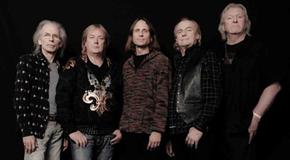
Why did the band pick these three albums? Was the decision based on sales, fan reception or another reason?
It was based on what would make a good show … a cross section of Yes in the 1970s. The Yes Album, of course, was the first album that got us worldwide attention, put our name on the map. That, in a way, has a place in our hearts as it does for so many fans.
Close To The Edge was the first time we attempted to do a 20 minute piece that took up the whole of side one. That, in a way, is another landmark album. And Going For The One, a slightly different flavor again. Also, of the three albums, [it’s] the only one Alan White played on [following] Bill Bruford. That was also the first time we recorded outside of the U.K. That album was recorded in Montreux on Lake Geneva in Switzerland.
I think the three albums musically complement each other. We’ll find out once we get on the road. I think it’s going to be good.
Do you see any problems presenting the albums back-to-back as opposed to a regular set where you arrange songs based on intensity and flow?
I don’t know. Until we get into rehearsals … we may not do them in the sequential order of release. We’re thinking of doing Close To The Edge first, then Going For The One, and The Yes Album as the third album in the trio. But we won’t really know until we get into rehearsals.
Whether we’ll stretch out some of the instrumental sections as in the guitar solo in “Yours Is No Disgrace” as we’ve been used to doing, I don’t know. That’s something else we’re going to have to look at. Or, to make it totally faithful to the album.

I think one of the points of doing this is that people will enjoy, pretty much, a carbon copy of how they originally heard it. I think that’s part of the appeal … We’ve never done this before, to actually play albums in sequence like this. I don’t know how it’s going to pan out. We’ll fiddle with it a little bit.
When the tour was announced, you mentioned that one song the band had never performed live was “A Venture” from The Yes Album.
Strangely enough, before we recorded it on The Yes Album, we had another completely different version of that song which was in a different time signature and featured me playing bass and Steve Howe playing bass, a kind of a little bass duet. But when we recorded it on The Yes Album, we completely struck that idea and went with a different arrangement. I think we’ll go with the one we recorded.
With The Yes Album being the first Yes disc Steve Howe played on, were you two just getting aquatinted at that time?
I knew of him. He’d been in a band called Tomorrow. My previous band before Yes was The Syn and it used to be on bills around 1966-67 [with Tomorrow]. So I’d seen him play many times with Tomorrow but hadn’t really gotten to know him. I saw him play at the Speakeasy club in London with another band, Bodast, which was more of his own project. I think around that time I first said, “Hi” to him. I’d been aware of his playing, though, for a few years.
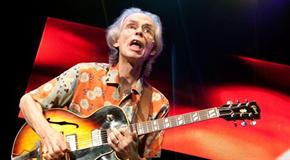
When the tour was announced, you said “Turn Of The Century” was “probably the most tricky.” What makes that so?
One of the reasons is that there are no drums in it. It’s almost, in a way, like an orchestral piece. In an orchestral setting [it] would require a conductor for everyone to play in time. So the difficulty of it is to be able to play, especially the keyboard solo in the middle which is very free-form, floats around and there’s no drums in it keeping time. It’s quite a complicated piece to play. We have played it in the past. At the very end of the song, the drums come in for a little bit. Of course, Geoff Downes isn’t the original keyboard player, so he’s got to learn it. There won’t be a problem. We just [plan on] a little extra rehearsal time for a couple of things like that.
You and Howe are the only members of Yes that played on all three albums to be showcased. Regarding personnel changes through the years, is it a challenge for musicians to learn Yes music?
I don’t know, really. Because everyone we’ve used have been pretty competent players. And Geoff is very good at picking up on things. I don’t see any problems. Of course, we have Jon Davison our new singer that we’re looking forward to getting back together with on this tour. He did such a great job for us last year.
One of the trademarks of the three albums is original lead singer and Yes co-founder Jon Anderson’s vocals. However, the band has had three other singers through the years – Trevor Horn, Benoit David and now Jon Davison. Is it difficult to incorporate new singers into the band, especially for material that originally was recorded with Anderson’s vocals?
Thankfully, it’s very smooth with Jon Davison coming in. He’s very familiar with a lot of the Yes material, having, at one time, been in a Yes cover band called Roundabout. That obviously helps.
How did you find him?
Funny thing is his name had been given to me by my friend Taylor Hawkins, the Foo Fighters drummer. He went to school with Jon Davison when they were 5 or 6 years old and knew him all his life. He said to me, “If you ever need a guy, I know a guy who would be great for you.” For some reason or another, that flipped my memory … His name (Davison) came up again not long after we decided to work with Benoit. He’s always been hovering … it’s one of those things, I guess.
Benoit David was also in a Yes cover band. What’s your view of bands picking other bands and just covering that band’s material?
I think it honors the music that we’ve written. From that point of view, it’s a very positive thing that these people want to do that. Obviously, they’re fans of the music … That’s a good thing, I think.
Of the three albums the band will play on the upcoming tour, do you have a personal favorite?
No. There are little gems on all of the Yes albums. It’s sort of like children. I don’t really favor one over the other.
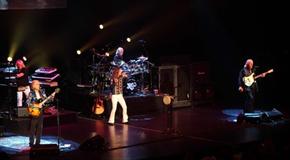
You’ve described the albums as representing different parts or eras of the band’s career. When making those albums, did you feel they would turn out to be as special to the band as they turned out to be?
We were young when we did The Yes Album, but I think we could sense that we had come up with something that had a degree of magic attached to it. Certainly when we had our first listening party at that studio, the people who came down for it, the people from the record company, thought it was great. And it eventually went on to become a No. 1 album in England, which spurred Atlantic Records to think about putting money into it for release in the U.S. Fortunately, or unfortunately, that’s how the business works … By the time we came to the next album, Fragile, we had a faithful U.S. fan base.
During the time of The Yes Album and Fragile, because of the complexity of the music, Yes almost sounded like a studio band, yet it immediately showed its live chops by reproducing the music on stage. Even in the early years, was the live show considered equally important to the studio work?
Yes. We had all been experienced in doing live shows since we were even younger. Me and my previous bands, Jon Anderson and his previous bands. Steve Howe as well. We had a pretty good grounding in the art of live performance. I suppose we were more at that time learning the ins and outs of working in a studio. Of course [producer/manager] Eddie Offord … came on board on the second album even though there was a producer already involved with that. The Yes Album was the first album that Eddie and ourselves co-produced.
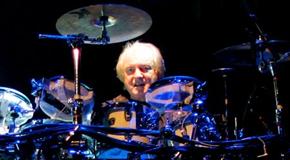
For The Yes Album, didn’t Offord put together several different individual pieces the band had already recorded to create the songs?
We did do that. For instance, “Starship Trooper” is a song like that. There’s section No. 1 and there’s another section that’s like another piece of music. Jon Anderson wrote the first part, I wrote the second part and there’s a third part Steve Howe wrote that’s on the end of the song. Of course, Eddie was very good at editing tape.
The whole learning curve experience we had at that time, being in the studio at that time was at the advent of new instruments [like] the new keyboards – Mellotrons, Moog Synthesizers, etc, etc … That was a whole developing song pallet that was coming out … and we made use of it.
Regarding how bands these days often sample previous recordings to incorporate in their songs, when playing the song “Close To The Edge” in concert, do you use the original birds sound effect that was on the album or is what we hear today a sample of that recording?
I think it is the original one. Of course, nowadays it’s easy to take a sample of that if you need a fresh version. I’m sure, in our library, that it’s been done already. But it is the original birds. It may have been extended to be longer, but it’s the same effect.
If you could send a message back to Chris Squire in 1968, what advice would you give him?
A lot [laughs]. I would give him marriage advice. I would give him financial advice. Quite a few things.
Musically, I don’t think I would have done anything much different. That remains, you know, the great experience, our progress. And we’re still on that track.
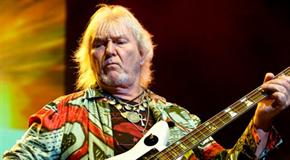
Yes begins the journey in West Wendover, Nev., at the Pepper Concert Hall March 1. The first week of shows also includes Seattle at Moore Theatre March 3; San Francisco at Warfield Theatre March 5; Los Angeles at the Orpheum Theatre March 6; and Temecula, Calif., at Pechanga Resort & Casino.
Other stops include Aspen (March 12), Kansas City (March 18), Biloxi, Miss. (March 22), New York City (April 9), Toronto (April 11) and Detroit (April 12). Due to time constrictions, the band’s casino gigs will only feature renditions of two albums, The Yes Album and Close To The Edge, in their entirety.
There’s also a Yes cruise, appropriately titled “Cruise To The Edge” set for March 25-30. Click here for the details.
Of course, for everything in the Yes universe, visit YesWorld.com.
And don’t forget to check out Pollstar’s 2012 interview with Squire and Steve Hackett about their Squackett album. Just click here.

 Daily Pulse
Sign Up Now
Daily Pulse
Sign Up Now